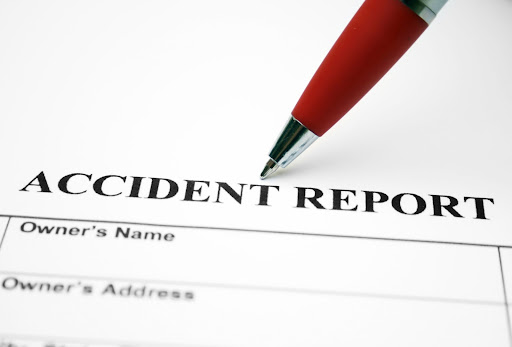
No one ever expects to be seriously injured while riding on a bus. Buses are such huge vehicles that it gives riders a sense of invulnerability. But bus accidents happen all the time. Even though busses are huge, a bus passenger can still get knocked around even after a somewhat minor impact. You also have to consider that most buses don’t have seatbelts so that protection will not be available to passengers. If you are seriously injured in a bus crash, make sure a bus accident report is created and properly filed. It’s important to do what you can to make sure the bus incident report is as accurate as possible.
The Seattle bus accident lawyers at Brett McCandlis Brown & Conner PLLC, focus their practice on representing seriously injured people in the car, truck, and bus incidents. We have developed the skills and knowledge to win hard cases over decades of work.
Seattle Bus Accidents Happen Often
In the City of Seattle, in 2020, there were 106 bus accidents within the city limits. In the vast majority of those accidents (75), there were no reported injuries. During that year, four people suffered serious injuries in bus accidents, and ten people suffered from minor injuries. In 2019, there were 214 bus accidents within the city with 10 serious injuries. Based upon these numbers, if you ride the public bus system often, expect to eventually be in an accident.
How to Write a Bus Accident Report As Per Washington Laws
Start a bus accident report by collecting critical information, including the date, time, and location. Document the details of the event, covering weather and road conditions as well as traffic signs or signals at the scene.
To write a bus accident report accurately, include these essential details:
- Date & Time: Exact time and date of the accident.
- Location: Street names, intersections, city, and any landmarks.
- Bus Details: Bus company name, fleet number, and route number.
- Police Details: Officer’s name, badge number, and case number.
- Other Vehicles Involved: License plate numbers, vehicle makes/models, and driver information.
- Witness Statements: Names and contact information of any witnesses.
- Road & Weather Conditions: Rain, snow, fog, ice, or poor visibility.
- Photos & Videos: Take pictures of vehicle damage, injuries, road conditions, and traffic signals.
- Insurance company covering the bus.
Each point helps ensure the report is complete and provides all necessary information for a thorough review.
Types of Bus Accidents
Many types of busses and bus companies can be involved in a crash. It’s not just public city busses.
- Public Bus services: These are the publicly-owned buses belonging to municipalities, school districts, and other types of government-run bus systems.
- Private transportation companies: These are private bus companies and transportation services, such as shuttle buses, taxis, airport shuttles, etc.
- Trolley and streetcars: This category would include the Lake Union Trolley or a Seattle Streetcar, for example. There are both public trolleys and privately owned trolleys.
The ownership of the buses makes these accidents hard to resolve. Both private companies and government agencies own busses. It’s a good idea to hire a law firm that has a long history of successfully handling Washington State and Seattle bus accident cases.
Who Is Potentially Responsible for the Bus Accident?
There are many people and companies that could be potentially responsible for the cause of the crash and any injuries. Passengers are not responsible unless you interfere with the bus driver in some way. Here are the potential at-fault parties in bus accidents.
The Bus Driver
The bus driver is responsible if they drove negligently and didn’t follow the rules of the road. There are many ways for a bus driver to cause a crash, including distraction, speeding, or aggressive driving. If the accident was the bus driver’s fault, then their employer would also be held responsible through the legal concept of respondeat superior. This legal concept says that, in most instances, an employer is responsible for the actions of their employees.
The Other Driver or Drivers
Just like any accident, if another driver was negligent, they would be responsible. The at-fault driver’s insurance company is responsible for the payment of compensation for any injuries. However, there are scenarios where the bus insurance company might add to the compensation. Also, your own automobile insurance company may come into play in certain scenarios.
The Bus Company
Other than respondeat superior responsibility, the bus company can be responsible independent of their connection to their bus driver employee. In theory, an injured person can file suit against the bus company for negligent hiring, negligent supervision, or negligent retention. For example, if the bus company knew the driver had several prior bus accidents but hired him or her anyway, this could be evidence of negligent retention. Another example is if the bus company doesn’t properly supervise or discipline the driver for safety infractions. If the company doesn’t fire the bus driver, this could also be evidence of negligent retention. The bus company can’t ignore safety violations.
Should You Give a Statement to an Insurance Company After a Bus Accident?
You should not give a recorded statement to an insurance adjuster from any insurance company, whether it be the bus owners’ insurance company or the at-fault driver’s insurance company. The only time you should give a recorded statement to an insurance adjuster is when your experienced Washington bus accident lawyer has agreed to it and is sitting next to you during the statement. The reason to not give a statement without a legal practitioner is that adjusters are trained at attempting to get you to say things that you may not mean. Giving an incorrect statement because you misunderstood the question, for example, could hurt you in the future. Your recorded statements could be used to contradict your testimony at trial if your case gets that far. This doesn’t mean you should not talk to the police at the scene of the accident. If the police are asking questions and requesting information from the bus passengers, make sure that the bus accident report is as accurate and full of facts as possible. Writing a report on a bus accident by the police is very important. The police report is evidence during a lawsuit that can establish facts of the case and pinpoint liability.
Contact the Washington State Bus Accident Attorneys at Brett McCandlis Brown & Conner PLLC If You Were Seriously Injured in a Seattle Bus Crash
Bus accidents can become quite complicated with many parties and employers that should be held responsible. There are a lot of moving parts, and you should not feel like you have to handle the case on your own. If you are seriously injured in a Washington state or Seattle bus accident, contact the attorneys at Brett McCandlis Brown & Conner PLLC, and let our knowledge and experience help you get the compensation you deserve.


